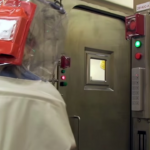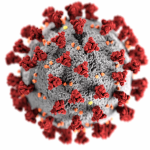Acting to educate life scientists
By Malcolm Dando | October 31, 2008
Anyone familiar with the history of the Biological and Toxin Weapons Convention (BWC) will know that for years participants in BWC meetings have spoken about the importance of education in preventing the malevolent dual-use of biological technologies. Yet for all the bluster, the practical results regarding, for example, scientists’ understanding of the convention and their obligations under it, have been limited. So when I saw the Informal Advance Report from the August 2008 expert-level BWC meeting trumpet the importance meeting participants placed on education, I was skeptical.
The week-long August meeting was held in Geneva and was part of a series of meetings that States Parities agreed to hold between 2007 and 2010 to “discuss, and promote common understandings and effective action” on issues in the lead up to the seventh five-year convention Review Conference in 2011. The informal report is of interest because it informs the agenda for the meeting of State Parties which will take place in Geneva in the first week of December, and the results of that meeting could have significant impacts on the life sciences in the years ahead.
States should agree to report their progress on developing and implementing educational and training programs at the Seventh BWC Review Conference. Only with such agreements, can states alleviate the pervasive ignorance of life scientists about the dangers of their benignly intended work.”
One of the two topics that the August meeting intended to address was “Oversight, education, awareness raising, and adoption and/or development of codes of conduct with the aim of preventing misuse in the context of advances in bio-science and bio-technology research with the potential for use for purposes prohibited by the Convention.” I don’t doubt that common understandings and effective action are urgently needed on these issues. But will the Informal Advanced Report result in the appropriate action in December?
The report has a short introductory section describing the meeting and then two annexes. Annex II is also short and lists the official documents of the meeting. Annex I is 44 pages long and lists the “Considerations, Lessons, Perspectives, Recommendations, Conclusions and Proposals drawn from the Presentations, Statements, Working Papers and Interventions” on the topics under discussion at the meeting. Eighteen pages of this annex relate to the issues of oversight, education, awareness raising, and codes of conduct. In sum, the report is complex, as might be expected from a meeting that, according to the final U.N. press release, involved almost 500 participants including over 180 scientists and other experts.
If educating scientists was such an important part of the August meeting, Annex I would certainly have a bevy of information about how the States Parties are going to make it a priority. Indeed, the annex cites 199 examples of considerations, lessons etc. related to oversight, education, awareness raising and codes of conduct. Of these, some 40 mention education, and of those that mention education the majority are drawn from just five working papers (working papers 10, 18, 21, 25, and 28, which are available online).
The detailed agenda of these papers reflects the positive view of education set out in the advance report, but the real importance of education was, perhaps, best put by a U.S. representative at the meeting: “Successful implementation of a code of conduct is contingent on a clear understanding of the subject matter, and so for dual use research, education on the criteria for identifying dual use is key.” In short, education is not an optional “add on” but the very foundation of oversight and codes of conduct.
After reviewing these materials, I would not be surprised to find that the State Parties to the BWC agree in December on the value of education. But agreement won’t be enough; States Parties must go much further. For example, State Parties should act to ensure, in the words of my colleague Brian Rappert that “all those graduating from higher education in fields associated with the life sciences should be familiar with the international prohibition against biological weapons. . . . All those undertaking professional research careers should have received effective training or instruction related to preventing the misuse of their research. . . . And each government . . . should commit itself to initiating a dialogue with their respective national science academies about how the present low level of awareness can be swiftly corrected.”
Moreover, as an accountability measure, BWC State Parties should also agree to report their progress on developing and implementing educational and training programs at the Seventh Review Conference. Only with such agreements, can states alleviate the pervasive ignorance of life scientists about the dangers of their benignly intended work. As Rappert has noted, “A fundamental principle in preventing the destructive use of the life sciences is that benign intent of individuals is not a sufficient response to preventing misuse.”
Together, we make the world safer.
The Bulletin elevates expert voices above the noise. But as an independent nonprofit organization, our operations depend on the support of readers like you. Help us continue to deliver quality journalism that holds leaders accountable. Your support of our work at any level is important. In return, we promise our coverage will be understandable, influential, vigilant, solution-oriented, and fair-minded. Together we can make a difference.
Topics: Biosecurity, Columnists














